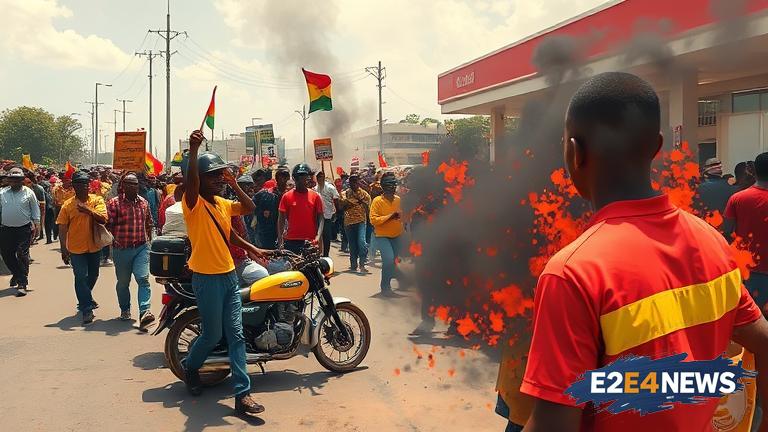The protests, which began over the high cost of petrol, have escalated into widespread unrest, with reports of violence and looting. The government has deployed military personnel to quell the protests, but the situation remains volatile. Medical services are overwhelmed, with hospitals struggling to treat the large number of injured protesters. The death toll has risen significantly, with many more feared dead. The protests have also led to widespread destruction of property, with many businesses and homes damaged or destroyed. The government has promised to investigate the violence and bring those responsible to justice. However, many Angolans are skeptical, citing a lack of accountability and transparency in the government’s response. The international community has called for calm and restraint, with the United Nations urging the government to respect the rights of protesters. The European Union has also expressed concern, calling for a peaceful resolution to the crisis. The protests have highlighted the deep-seated economic and social issues facing Angola, including high levels of poverty and inequality. The government has faced criticism for its handling of the economy, with many Angolans feeling that the benefits of the country’s oil wealth have not been shared fairly. The protests have also raised questions about the role of the military in Angolan politics, with some critics accusing the government of using excessive force to suppress dissent. Despite the challenges, many Angolans remain hopeful that the protests will bring about positive change, with some calling for reforms to address the country’s economic and social issues. The government has announced plans to increase the minimum wage and reduce the cost of petrol, but many protesters are skeptical, citing a lack of trust in the government’s promises. The situation remains tense, with many fearing that the violence could escalate further. The international community is watching the situation closely, with many calling for a peaceful resolution to the crisis. The Angolan government has faced criticism for its human rights record, with many accusing the government of suppressing dissent and restricting freedom of speech. The protests have highlighted the need for greater transparency and accountability in Angolan politics, with many calling for reforms to address the country’s economic and social issues. The government has promised to engage in dialogue with protesters, but many are skeptical, citing a lack of trust in the government’s intentions. The situation remains volatile, with many fearing that the violence could escalate further. The death toll continues to rise, with many more feared dead. The government has faced criticism for its response to the crisis, with many accusing the government of using excessive force to suppress dissent. The international community is calling for a peaceful resolution to the crisis, with many urging the government to respect the rights of protesters.
